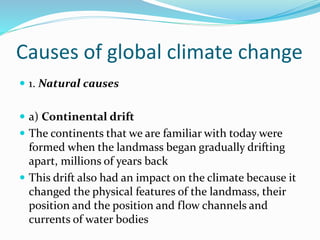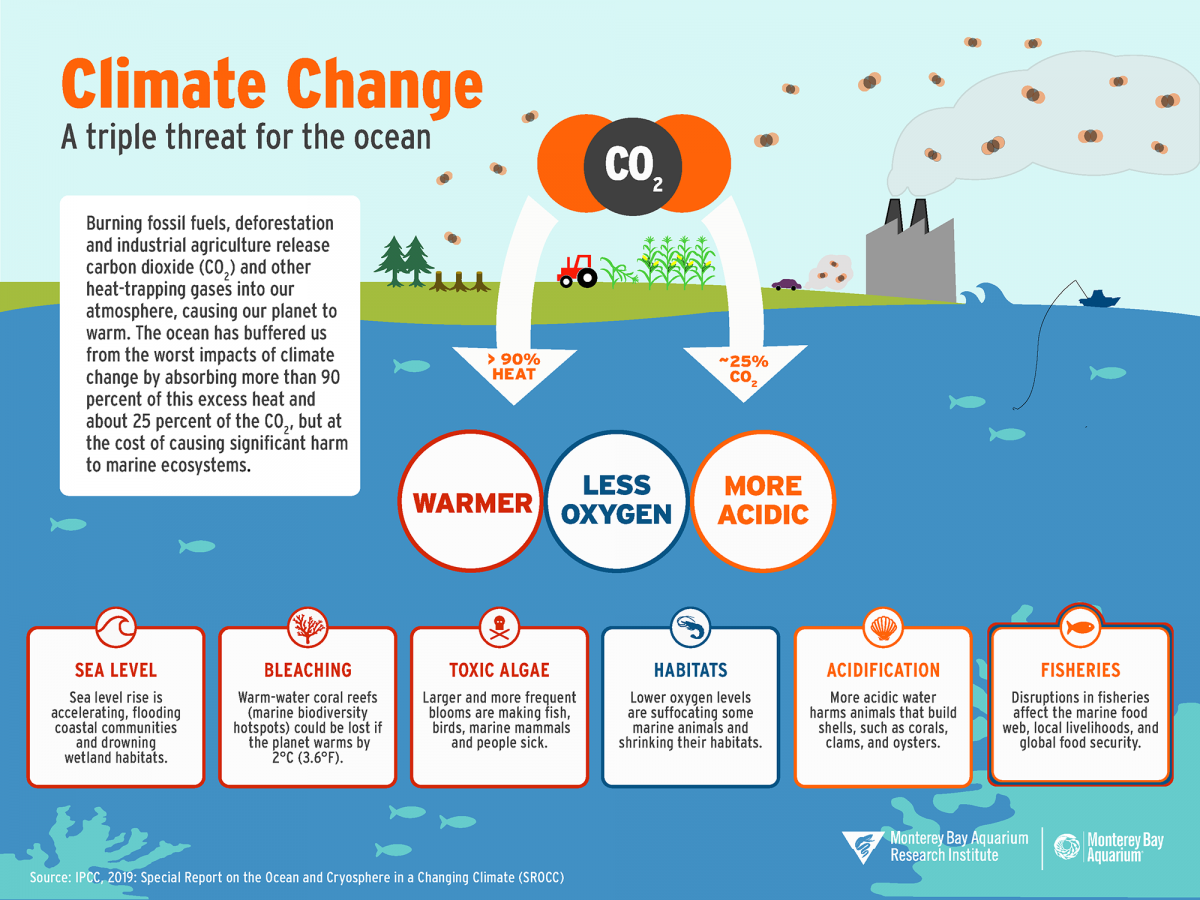Describe How Freshwater Ecosystems Face Challenges of Global Climate Change
As the ocean warms freshwater glaciers around Earth begin to melt at an unsustainable rate which results in rising sea levels. This shifting balance would challenge water managers to simultaneously meet the needs of growing communities sensitive ecosystems farmers ranchers energy producers and manufacturers.

Manage Rivers Lakes And Other Freshwater Ecosystems For Climate Change Conservation In A Changing Climate
Climate Change Influences Salmon Migration Patterns and River Habitat.

. This text examines the impact of climate change on freshwater ecosystems past present and future. Flooding and storms are obvious dangers but climate change impacts to coastal communities can come through many paths. Projected increases in temperature are expected to disrupt present patterns of plant and animal distribution in aquatic ecosystems.
It also influences the properties of ecosystems and the flows of energy and materials through them. Approximately 98 of our water is salty and only 2 is fresh. Climate change is already stressing many freshwater species by warming water temperatures shifting streamflow regimes increasing extreme events eg floods drought wildfire and facilitating species.
Climate change is projected to reduce water supplies in some parts of the country. And all around the world. Warmer water temperature can lead to fish kills or harmful algae blooms.
Evidence and consequences of global climate change by the film. The ecosystems are home to more than 40 percent of the worlds fish species. At the same time that some areas are.
Inputs from Terrestrial to Freshwater Ecosystems. Droughts will pose serious challenges to the safety health food and water supplies of plants animals and humans in some regions and floods will do the same in others. Compared to 10 of counties today by 2050 32 of counties will be at high or extreme risk of water shortages.
Climate change can alter where species live how they interact and the timing of biological events which could fundamentally transform current ecosystems and food webs. We describe the magnitude and general patterns of the global challenge of water availability for urban residents recognizing that such a global approach cannot account. The ecological effects of climate change on freshwaters of the region include.
We will also need to integrate long-term empirical survey data with models and. 1 a general increase in rates of primary production organic matter decomposition and nutrient cycling as a result of higher temperatures and longer growing seasons. Longer more intense droughts threaten crops wildlife and freshwater supplies.
According to these climate forecasts the future of fresh water will be full of extremes. Warmer air can hold more water vapor which can lead to more intense rainstorms causing major problems like extreme flooding in coastal communities around the world. Sea levels are rising and oceans are becoming warmer.
Describe how freshwater ecosystems face challenges of global climate change. Ecosystems around the globe are rapidly changing in response to climate change and other human-induced stressors. As the climate warms harmful algal blooms happen more often and become more severe.
Of that 2 almost 70 is snow and ice 30 is groundwater less than 05 is surface water lakes rivers etc and less than 005. Exponential change due to a disturbance in environment-- ex. In many areas climate change is likely to increase water demand while shrinking water supplies.
Climate change poses a fundamental threat to the places species and peoples livelihoods WWF works to. Ice melting makes surface of earth darker therefore sunlight is absorbed and death heats up more melting more ice. Glacier Bay National Park and Preserve Klondike Gold Rush National Historical Park and Sitka National Historical Park.
2 reduction in habitat for cool water species particularly fish and macroinvertebrates in Appalachian streams. One of the key challenges facing freshwater ecologists is to develop a suite of tools for detecting the impacts of climate change in complex natural systems that can be applied across multiple spatio-temporal scales and levels of organization. This is true in areas where precipitation is projected to decline and even in some areas where precipitation is expected to increase.
Freshwater ecosystems are essential for human survival providing the majority of peoples drinking water. Here I describe some recent salmon research in Southeast Alaska and touch on future issues of concern in the regions three national parks. The metabolic rates of organisms and the overall productivity of ecosystems are directly regulated by temperature.
Global warming of the magnitude anticipated a 1ºC to 4ºC 18ºF to 72ºF increase in global mean temperatures. Average global temperature has increased by about 1 C 18 F since the industrial revolution with much of this increase taking place since the mid-1970s 3 4 and further increases expected if emissions of heat-trapping. Climate change can overwhelm the capacity of ecosystems to mitigate extreme events and disturbance such as wildfires floods and drought.
Climate is the single most important factor determining the geographic distributions of species and major vegetation types. Climate change intensifies this cycle because as air temperatures increase more water evaporates into the air. Altered regimes of drought and moisture may also increase the incidence of fire in forest scrub and grassland 113 thereby changing the rate input regime and role of wood in streams 103.
By Fisheries Program May 1 2018. Consider a water cycle diagram like the one below. Hotter summers can make being outdoors unbearable.
Global warming is altering nearly every stage in the diagram. From polar bears in the Arctic to marine turtles off the coast of Africa our planets diversity of life is at risk from the changing climate. GLOBAL CHANGE AND FRESHWATERS 123 doubt change as precipitation variability and timing change.
It especially considers the interactions between climate change and other drivers of change including hydromorphological modification nutrient loading acid deposition and contamination by toxic substances using evidence from palaeolimnology time-series analysis. These changes will put pressure on drinking water supplies food production property values and more in the US. Climate change impacts the worlds water in complex ways.
Freshwater ecosystems in river basins with large populations of urbanites with insufficient water will likely experience flows insufficient to maintain ecological process. But it doesnt end there. Aquatic and wetland ecosystems are very vulnerable to climate change.
Home UMass Amherst. Climate change is an additional stressor in a complex suite of threats facing freshwater ecosystems.

Impacts Of Global Climate Change On Aquatic Biota

Climate Crisis And Ocean Warming The Shape Of Life The Story Of The Animal Kingdom

Pdf Impact Of Climate Change On Freshwater Ecosystem And Its Sustainable Management
Climate Change Impacts On Lakes North American Lake Management Society Nalms
No comments for "Describe How Freshwater Ecosystems Face Challenges of Global Climate Change"
Post a Comment